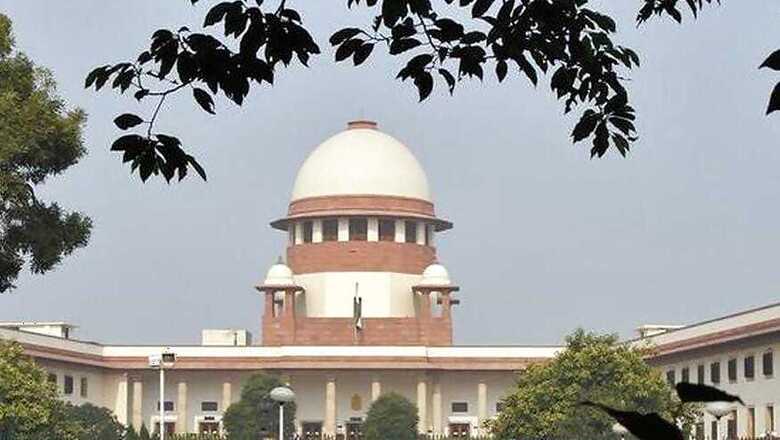
views
New Delhi: Stating that data is reflection of an individual's personality, the Central government on Friday told the Supreme Court it is committed to bringing in a regime for data protection and sharing.
Additional Solicitor General P S Narasimha said that data will be regulated by the government through a regime which is being contemplated.
"You have to analyse what really data means in this digital era. Data is expansion of one's personality. It is integral to one's footsteps since it travels with you wherever you go. It is indeed under one's right under Article 21 (right to life and liberty," emphasised the ASG.
This is where, Narasimha said, the State comes in. "This data is reflection of individual's personality. It is connected to Article 21 and therefore, any contractual provision which impinges upon my right will impinge upon Article 21," he added.
The law officer was making submissions in connection with a case against WhatsApp privacy policy, which has been challenged on the ground of it violating right to privacy and for stifling free speech by allegedly sharing data with Faceboook. Facebook had last year bought WhatsApp.
WhatsApp has refuted these allegations saying all messages, photos and documents were end-to-end encryption and could not be read even by the company.
During the hearing before a five-judge Constitution Bench on Friday, the bench asked the government whether it would regulate data.
Replying in affirmative, the ASG said that the government would intervene and frame a regime since data directly involved fundamental rights of individuals.
On its part, the bench also observed that a telecom service provider would come within the ambit of providing a public utility service and hence, it could not be permitted to enter into "unconscionable" contracts with users.
"One cannot be allowed to impose conditions to curtail one's right of free choice in matters of public utility," it said.
Counsel for WhatsApp and Facebook, senior lawyers Kapil Sibal, Sidharth Luthra and Arvind Datar, said that they were willing to give an undertaking before the bench that WhatsApp has not and will not share data with anyone.
"But if this case has to be argued, the petitioners will have to show where and how have we shared the WhatsApp data," contended Sibal.
The bench, however, disagreed with this proposition. "It is not about injury in common law principle...it is about constitutional protection," said the court.
It asked counsel for both sides to prepare their submission and start final arguments in the matter on September 6.
A nine-judge bench is also hearing various issues relating to right to privacy and data protection arising out of question whether Aadhaar violates right to privacy. This bench is to rule whether right to privacy is a fundamental right or not, and other contours relating to data protection. When the WhatsApp privacy case is heard in September, it is very likely that the larger bench would have laid down the legal principles on the issue relating to right to privacy and data protection. Individual cases could then be decided on the basis of their merits and factual matrix.


















Comments
0 comment